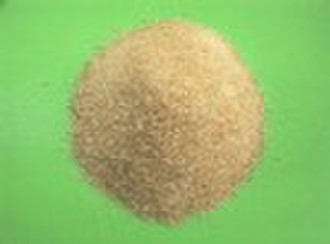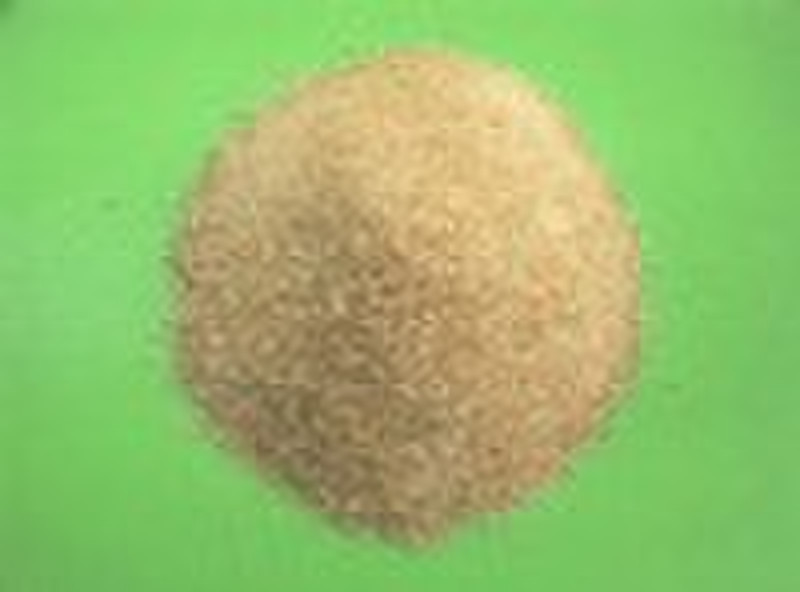Catalog
-
Catalog
- Agriculture
- Apparel
- Automobiles & Motorcycles
- Beauty & Personal Care
- Business Services
- Chemicals
- Construction & Real Estate
- Consumer Electronics
- Electrical Equipment & Supplies
- Electronic Components & Supplies
- Energy
- Environment
- Excess Inventory
- Fashion Accessories
- Food & Beverage
- Furniture
- Gifts & Crafts
- Hardware
- Health & Medical
- Home & Garden
- Home Appliances
- Lights & Lighting
- Luggage, Bags & Cases
- Machinery, Hardware & Tools
- Measurement & Analysis Instruments
- Mechanical Parts & Fabrication Services
- Minerals & Metallurgy
- Office & School Supplies
- Packaging & Printing
- Rubber & Plastics
- Security & Protection
- Service Equipment
- Shoes & Accessories
- Sports & Entertainment
- Telecommunications
- Textiles & Leather Products
- Timepieces, Jewelry, Eyewear
- Tools
- Toys & Hobbies
- Transportation
Filters
Search
industrial gelatin in granule
original price: 1,00 USD
Xiamen, China

lily lai
Contact person
Basic Information
| CAS No. | 9000-70-8 |
|---|---|
| Other Names | gelatine |
| MF | C102H151O39N31 |
| Place of Origin | Hebei China (Mainland) |
| Usage | Construction |
| Brand Name | HUAXUAN |
| Model Number | 100~550bloom/2E~12E |
| Classification | Other Adhesives |
industrial gelatin in granule:1.Specification sheetItemUnitJelly Strength(12.5%, 10°C) Bloom g ≥550-400380-300300-200180-100Viscosity(15%, 40°C) °E ≥12-87-65-43-2(12.5% 60°C) mpa•s ≥70-4035-2522-109-5(12.5%, 60°C)mps ≥200-130120-110100-8070-45Moisture% ≤12131414Ash% ≤2.02.52.53.0Transparency(5%, 40°C) mm ≥1005025-PH5.5-7Sense:1.Aspect-light yellow or yellow with in white granular no impurity that can be seen in eyes.2.Smell-No special smell. No foul smell. No peculiar smell.Stockpile:Must be far away the high temperature and the moist place, the room temperature, ventilates, is dry, evades the light for the best storing condition. Storing to cleanly in the bag, preserves the time is two years.ApplicationsCoating and Sizing Technical gelatins are used in the warp sizing of rayon and acetate yarns. The gelatin size adds strength to the warp and resistance to abrasion so that breakage of the warp is minimized. Gelatin is particularly well suited for this application because of its excellent solubility and film strength. It is applied in aqueous solution along with penetrating oils, plasticizers and antifoam agents before weaving, and later removed during finishing by washing with warm water.Panama hats are sized with gelatin. Sizing helps preserve the shape of the hat while imparting resistance to water and dirt. An emerging technology involves the use of gelatin to size quartz fibers for space-age fabrics.Paper Manufacture Gelatin is used for surface sizing and for coating papers. Either used alone or with other adhesive materials, the gelatin coating creates a smooth surface by filling up the small surface imperfections thereby ensuring improved printing reproduction. Examples include posters, playing cards, wallpaper, and glossy magazine pages.High quality rag-based papers, such as those used for blueprints and currency, also feature a gelatin size coating. The result is a paper which has good moisture and abrasion resistance as well as good adhesion to printing inks. During manufacture the gelatin coatings are rendered insoluble by treatment with cross-linking agents.The permanent crinkle in crepe paper is the result of gelatin sizing.Printing Processes For over a century, gelatin compositions have been used in printers' rollers and plate wiping rollers for multicolor presses and offset lithography. Several photo-printing methods depend on the effect of light on a gelatin film which has been sensitized by treatment with potassium or ammonium dichromate. Examples of printing applications include carbon printing, collotype printing, silk screen printing, and photogravure printing.Protective Colloidal Applications Much like edible gelatin is used for clarification of wine, beer and juices, technical gelatins are employed in the removal of extremely fine particles that cannot be settled out or filtered out of chemical solutions. Here gelatin is absorbed onto the surface of the particles effecting a coagulate that may be removed by settling or filtration. Approximately one pound of gelatin per ton of ore is used as a filtration aid during the extraction of uranium ore.Matches Gelatin is used almost universally as the binder for the complex mixture of chemicals used to form the head of a match. The surface activity properties of gelatin are important since the foam characteristics of the match head influence the performance of the match on ignition.Coated Abrasives Gelatin is used as the binder between the paper substrate and the abrasive particles of sandpaper. During manufacture the paper backing is first coated with a concentrated gelatin solution and then dusted with abrasive grit of the required particle size. Abrasive wheels, disks and belts are similarly prepared. Oven drying and a cross-linking treatment complete the process.Adhesives Over the past few decades gelatin-based adhesives have slowly been replaced by a variety of synthetics. Recently, however, the natural biodegradability of gelatin adhesives is being realized. Today, gelatin is the adhesive of choice in telephone book binding and corrugated cardboard sealing. The tackifying power of gelatin is used to advantage in the manufacture of packaging ribbons, decals, gummed tapes, glass laminates and composition cork gaskets. Hard cover book bindings typically utilize gelatin-based adhesives.:
Delivery terms and packaging
Packaging Detail: 1)25kg/pag or 20kg per bag2)packed by water-proof plastic film bag inner and woven bag outer or paper bag outer3)loading quantity:800bags(20MT) without pallets and about 720bags(18MT) with 18 palletscould be loaded in one 20 FCL container Delivery Detail: 2-3weeks
Port: China port
Payment term
Letter of credit
Telegraphic transfer
Western Union
-
Payment Methods
We accept:









